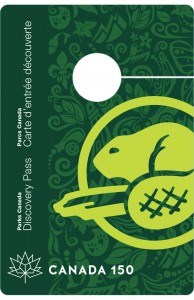
It’s already evident that 2017 is going to be a busy year for Canada’s national parks.
Demand for free passes swamped Parks Canada’s website the moment they became available on Dec. 1 and so far this month more than 500,000 people have already ordered their passes.
The free passes are part of an initiative brought in by the Liberal government to make park access free for all users in 2017 to mark Canada’s 150th anniversary.
Here in Jasper National Park, where visitation numbers have been on the rise for years, the municipality said the eager pass-seekers are the least of its worries as the new year approaches.
“Those are the people that are going to be prepared. What we’re concerned about are the people who show up here without a hotel or a campsite booked, and once they realize everything is full, end up parking in a municipal lot and camping illegally,” said Jasper’s communications manager Christine Nadon.
“Overnight camping in the townsite is definitely something we’re concerned about.”
From January to August, the municipality issued more than 260 illegal camping tickets and roughly 50 warnings. To avoid issuing more tickets next year, Nadon said the municipality, Tourism Jasper and Parks Canada are working together to develop a communication plan.
“Essentially what we’re working on is telling people ahead of time that right now is the time to book and to be prepared, but once the busy time hits we still need to be able to communicate with people,” Nadon said. “We want to keep people informed.”
Rather than just handing out tickets to every illegal camper, Nadon said bylaw officers will be taking a more compliance-based approach in 2017.
“We could give tickets to every vehicle that’s parked illegally, but then the reception that gives to a tourism community is up for a discussion,” she said. “We’d rather direct people to places where they can go, where they won’t be doing anything illegal.”
Discussions about using Snaring Overflow Campground as the town’s back-up destination are already underway. According to Nadon, the campground only reached capacity once last summer.
“It’s a matter of communicating this information with our bylaw officers. It sounds like directing people to Snaring is something we could have improved on last year,” she said.
Despite putting together a strong communication plan, Nadon said next year will not go by without its challenges.
“We’re not going to have much more than what we already have in terms of campsites and hotel rooms. There is no massive infrastructure that is going to be developed between now and the summer.
“There’s going to be a point when we’ll have to tell people that the park is full, without deterring them from wanting to come back to Jasper.”
The same challenge goes for parking. Due to last summer’s high volume of traffic in the townsite, Nadon said the municipality heard several complaints from residents.
Dave Osborne, the town’s licensing and enforcement manager, suggested visitors should pay for parking in municipal lots to cope with 2017, during a committee-of-the whole meeting in August.
While the idea isn’t completely off the table, Nadon said it would not be something put in place for 2017.
“The situation is going to be the same as last summer. There won’t be any increase to available parking stalls,” she said. “So what we’ll be working on is how to keep an eye on it and how to educate people.”
On the other hand, Nadon doesn’t believe JNP will get the same kind of traffic that is expected in Banff National Park, which saw roughly 24,000 vehicles pass through its gates per day in July and August.
“Banff does get really busy, but they also have more capacity for day-users. They are close to Calgary so it’s easier for people to visit for the day and go back,” she said. “We’re in a bit of a different situation because we’re so remote.
“If someone drives the four hours from Edmonton then they’re probably not just staying for the day, which is why we’re really focused on illegal camping.”
Raising the fine for illegal camping is something that might also be revisited for next year. It was already raised from $50 to $65 in August.
“A fully serviced campsite is around $40 so the fine is only a little more than the campsite which you couldn’t get anyway,” Nadon said.
As peak season approaches, Nadon said the municipality will also be holding meetings with the town’s emergency responders.
“Our fire department covers highway accidents and with an increase in traffic we’re likely to see an increase in those types of accidents,” she said. “But as an entity, we are as prepared as we can be.
“We are prepared in all the things that we have control over.”
Parks said it’s also doing its part to handle higher visitation rates.
“The reservation system is now available in January (as opposed to April, as we have done in past years) and that is to make it easier for visitors to plan their experience well in advance,” wrote Meaghan Bradley, a communications officer with Parks Canada’s national office.
“During peak periods, Parks Canada staff will also help direct visitors to less-frequented, but equally compelling and breathtaking locations within national parks.”
The agency is also encouraging shoulder season visitation and promoting “less frequented and less-sensitive areas” of Canada’s parks. The agency will also be offering more events and activities in the fall and spring, according to Bradley.
Parks is also investing in front-country facilities to ensure capacity can be handled. This includes significant investments in infrastructure, particularly in campgrounds, day use areas and trail rehabilitation, and the addition of oTENTik accommodations across the country.
Kayla Byrne
[email protected]
